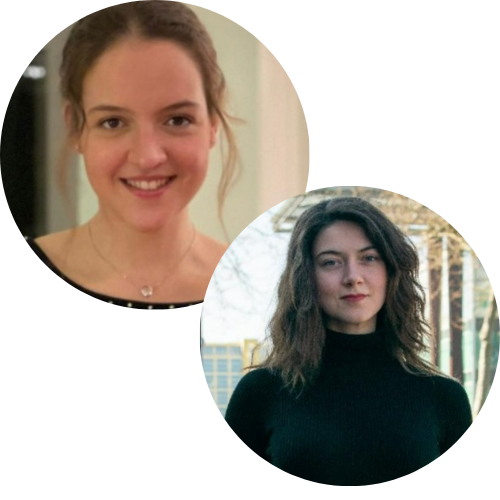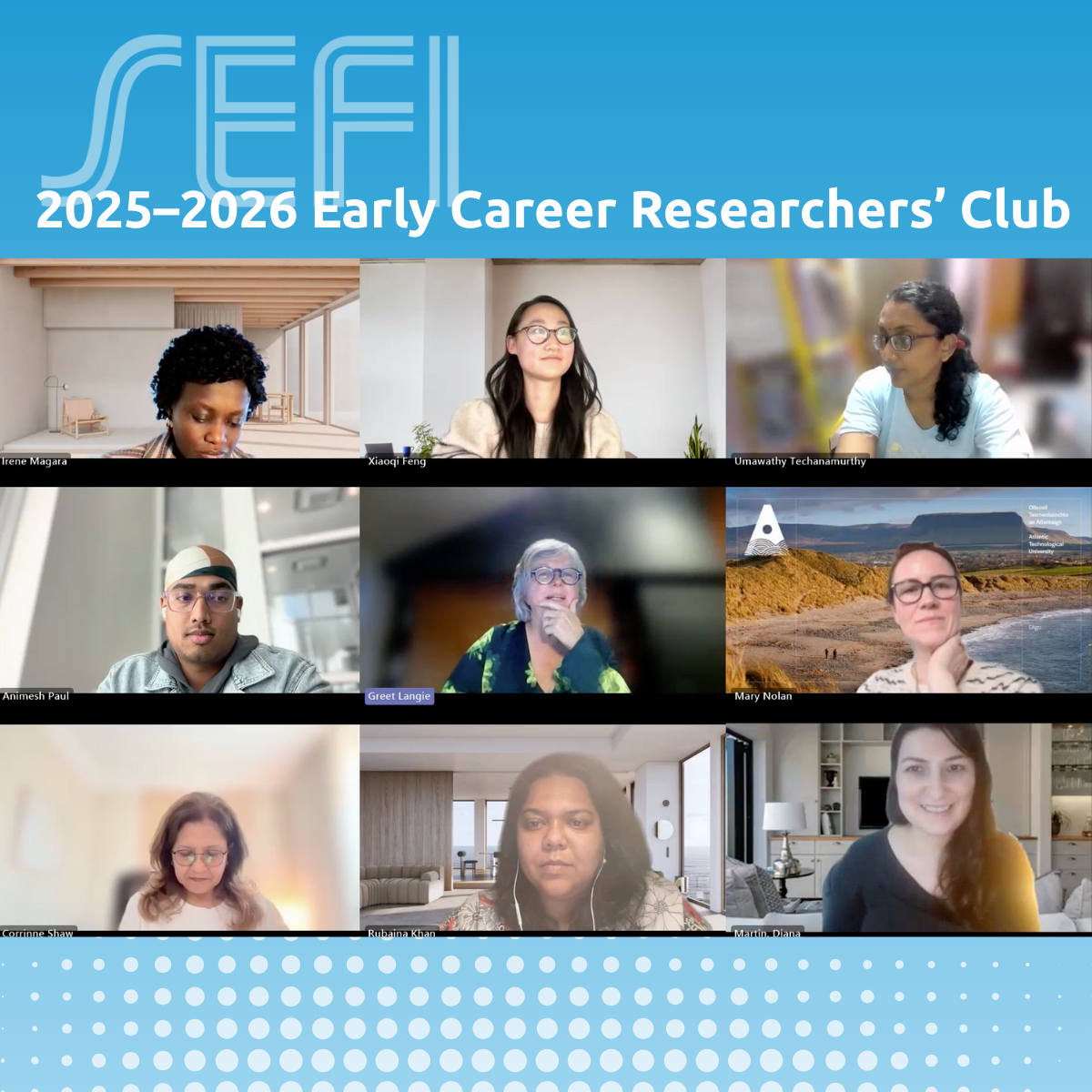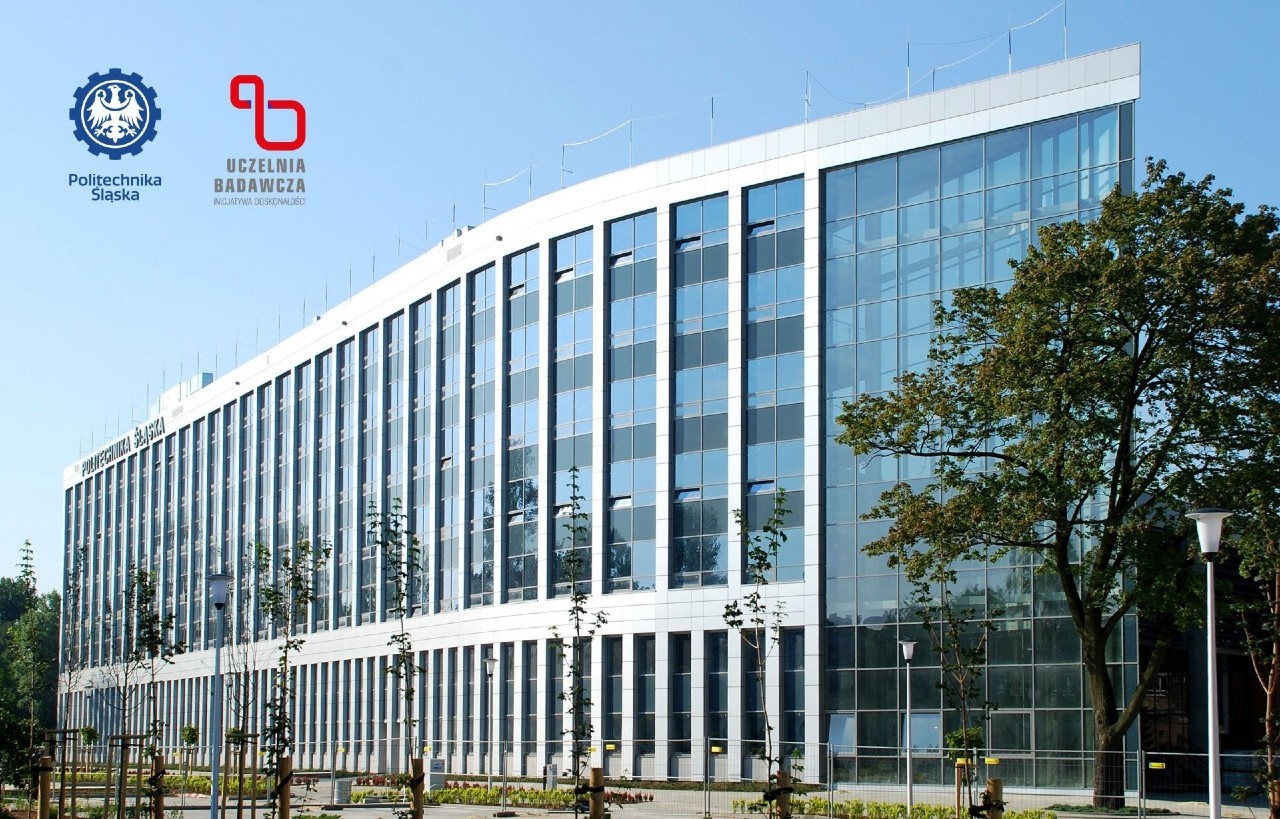The SEFI Early Career Researchers’ Club is a 9-month initiative designed to support and connect…
Aleksandra Evtimova, Simona Eichkorn, TU Eindhoven, The Netherlands

Marlieke Blankendaal, Simona Eichkorn, Aleksandra Evtimova, Colette Keurentjes, Ida Kuresevic, Kathinka Umbach are students in the Decision-Under-Risk-and-Uncertainty (DURU) course. They write about their experience in this course.
Sustainability has been a hot topic for the better part of the last decade and it can be seen how it starts to play crucial role in the development of new technologies, new products and services, but also how it becomes part of the working ethic within companies and part of the curriculum in educational institutions. An example of incorporating sustainability related challenges in design based learning courses at the Eindhoven University of Technology is the Decisions under risk and uncertainty course, part of the mandatory USE (User Society and Enterprise) track. During that course multiple stakeholders present their challenges and the students can choose the challenge that sparks their interest, and thus form multidisciplinary teams. The course gives a lot of freedom in terms of defining the concrete problem and approaching it in the best viable way according to the team. Its structure breaks the robustness of standard engineering courses by encouraging students to think outside the box while working on a real-life case and applying knowledge from previous courses.
The challenge we worked on was given by Student Team CORE which focuses on enabling circular economy by recycling complex, dangerous waste streams, more in particular e-waste streams, battery streams, fly ash, and mixed plastics streams, that currently end up on the landfill or get transported to third world countries. They posed the challenge to find the most dangerous step during the recycling of batteries. During our initial research we found that the waste of electronic and electrical equipment (WEEE) is the largest and fastest growing one worldwide [1] and then intuitively looked into who is responsible for handling it. Unfortunately, this is an example of the problem of many hands, as many people are responsible for the generation of WEEE but no single individual can be held accountable. Thus, we recognized the European Commission as the ultimate regulator to be held responsible and therefore took a very global approach towards the challenge. Our focus was on the implications which transported e-waste streams from Europe have on the local population and environment in countries in Africa and Asia, who is to be held responsible and how can the situation be improved.
We were faced with a sad reality… Children growing up surrounded by e-waste, workers manually dismantling electronic devices, constant exposure to heavy metals by workers, but nonetheless by local people as well. Yet the main contributors, e.g. individuals from developed countries, are not aware of the problem or even worse not interested in the consequences of their actions, as those do not concern them directly. This we found is the scariest dilemma that society is currently facing. How and why would the privileged part of humanity sacrifice its comfort, its way of living, wasting and constant overconsumption of goods for the potential improvement of life for the underprivileged ones? Why would an individual do that if one knows that one million other people should also adapt their way of living in order to create a significant change for the underprivileged ones? How do we make society selfless and caring on its own account in the most selfish era? The answer is simple. We must work together and be united by a great cause. This cause is sustainability. Sustainability should become our new religion!
Bibliography
[1] Pathak, P., Srivastava, R. R., & Ojasvi. (2017). Assessment of legislation and practices forthe sustainable management of waste electrical and electronic equipment in India. Renewable and Sustainable Energy Reviews, 78, 220–232. https://doi.org/10.1016/J.RSER.2017.04.062


